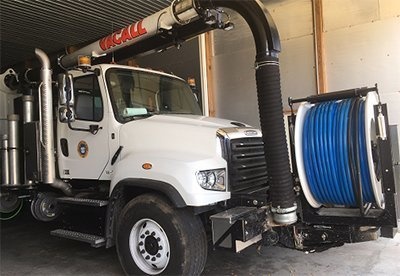
Did you know that discharging your fats, oils and grease into your home sewer and water lines can result in sewer backups? The discharge of fats, oils and grease (FOGs) into the Sussex County sanitary sewer system and storm drains is a rapidly increasing problem that results in the unnecessary spending of thousands of tax dollars each year to remove blockages and repair sanitary sewers. When FOGs are deposited down the drain, they cool and solidify to form hard deposits that decrease sewer line capacity and cause blockages and breaks. This can result in raw sewage overflowing from manholes and backing up into homes.
General Disposal Guidelines
Grease:
- Recycle used cooking oil or properly dispose of it by pouring it into a sealable container and placing the sealed container in the trash. To recycle large amounts, such as what's left over from a catfish fry or frying a turkey, contact a local recycler in the yellow pages under "Greases" or "Rendering." If you have a lot of oil to dispose of, use clay cat litter. Just mix the litter, a little at a time, into the oil. When all the oil has been absorbed, pour the cat litter into a trash bag, seal the bag, then dispose of it in your regular trash.
- Scrape food scraps into the trash, not the sink.
- Wipe pots, pans, and dishes with dry paper towels before rinsing or washing them, then throw away the paper towels.
- Place a catch basket or screen over the sink drain when rinsing dishware, or when peeling or trimming food, to catch small scraps that would otherwise be washed down the drain. Throw the scraps in the trash.
- Rinse dishes and pans with cold water before putting them in the dishwasher. Hot water melts the fats, oils, and grease (FOG) off the dishes and into the sewer pipes. Later on in the sewer, the hot water cools and the FOG may clog the pipes.
Paper Products:
- Paper towels, disposable (and cloth) diapers, baby and disposable wipes and feminine products cause a great deal of problems in the property owner’s lateral as well as in the County main. These products do not deteriorate quickly, as does bathroom tissue. Dispose in your regular trash.
- Every attempt is made to prevent backups in the public wastewater system before they occur. Sewer lines are specially designed to prevent accumulation and stoppages. In addition, we have maintenance crews that are devoted to inspecting and cleaning wastewater lines throughout the County on a regular schedule.
- Please be aware that County crews are only responsible for clearing a blockage on the County side of the lateral and are not authorized to enter your home or business to clear a blockage from inside of the property.
For more information regarding Sewer Clogs and FOG (Fats, Oil & Grease), see Tips on How to Avoid Sewer Clogs from Fats, Oils and Grease (FOG)
